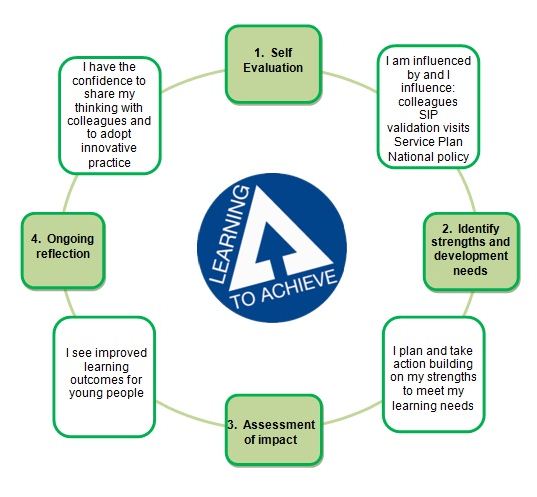
Pupils in Falkirk Children’s Services schools are beginning to use How Good is OUR School (Education Scotland 2018) to contribute to the self-evaluation and improvement of their schools. Senior leaders and practitioners are using the Features of Effective Practice (see example below) to support children and young people in their consideration of what their school does well, or needs to do better.
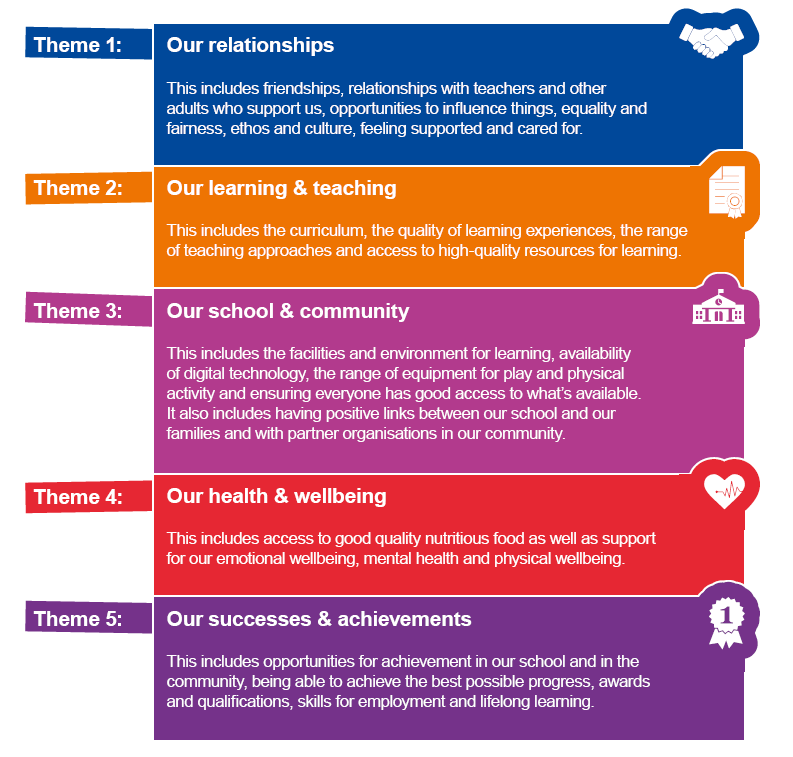
In February 2019, Yvonne McBlain, curriculum support officer, worked with colleagues in Avonbridge PS to create a pupil toolkit using elements of HGIOURS. They designed tools and a process which would enable every child in their school to add their voice to a collective self-evaluation/review process. The picture below shows the pro forma developed, and readers can click here to see the Features of Effective practice for theme 1 – Our Relationships. These are parts of a toolkit created to enable pupils to engage meaningfully in school self-evaluation, so that they can play a genuine role in identifying and shaping the school improvement agenda alongside staff, parents and partners. Click here to view the Power Point presentation used to help pupils at Avonbridge PS understand and take part in this opportunity to make their voices heard.

Jacqueline McLaughlin, head teacher at Antonine PS then used the HGIOURS toolkit with pupils in her school to inform and shape school improvement. In September 2019 her pupil council used the kit to help them prepare for and involve their parent council too. Jonathan Crawford, acting depute headteacher is also making use of the kit with pupil council members at Wallacestone PS. In each case, the kit is acting as a mediation tool to make the process accessible and meaningful to the pupils involved.
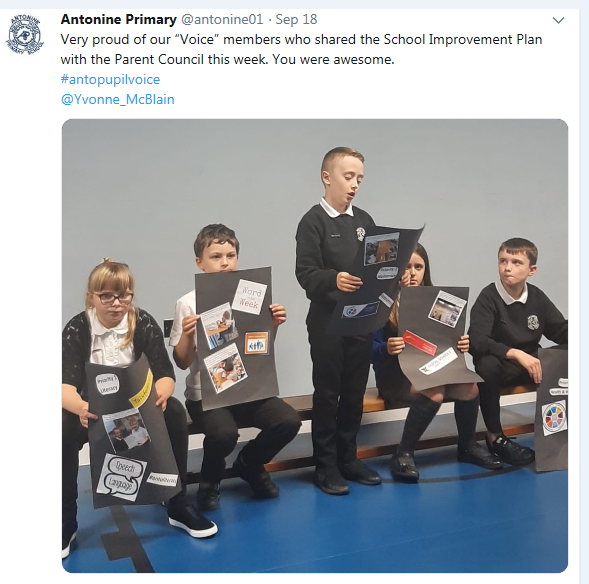

In May 2019 Robyn Wisbey, head teacher at Shieldhill PS and her depute Belinda Tomasik asked Yvonne to work with their primary 6 pupils and their teacher to explore how the toolkit could develop genuine and sustainable pupil-led self-evaluation and improvement processes across their school and community. Read about how this work is developing by clicking here.
In August 2019, Beverley Keith, head teacher at Laurieston PS and her staff began their refresh and review of their curriculum with Yvonne during their August inset day. Click here to read how Claire Thompson, class teacher and Laura Gavin, senior early years officer are supporting their pupil council in using HGIOURS to ensure that pupil voice also informs their curriculum.
All of these developments naturally support schools and pupils with HGIOS 4 Leadership and Management – particularly QI 1.1 Self-evaluation for self-improvement and QI 1.2 Leadership of Learning – children and young people leading learning. As a result of the leadership opportunities provided through their engagement with HGIOURS school at these schools, pupil participation has very obviously impacted on pupil skills for learning life and work, and on their confidence, leadership and self-esteem. They have an increased sense of their own capacity to make a difference in their school and are totally committed to ensuring other pupils in their school have their voices heard too.
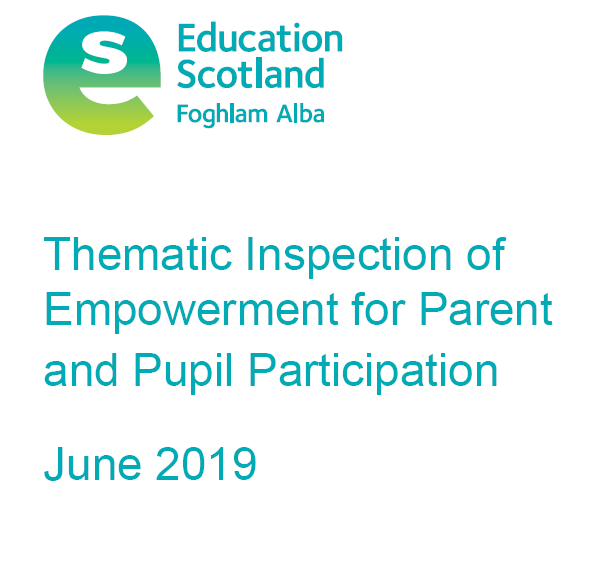
In addition, this work helps these schools address Aspects for improvement from the Thematic Inspection of Empowerment for Parent and Pupil Participation (Education Scotland 2019) :
- Continue to increase children’s and young people’s opportunities to lead their own learning and contribute to school improvement.
- Involve pupils, parents and partners more in curriculum design and evaluating the impact of curriculum change.




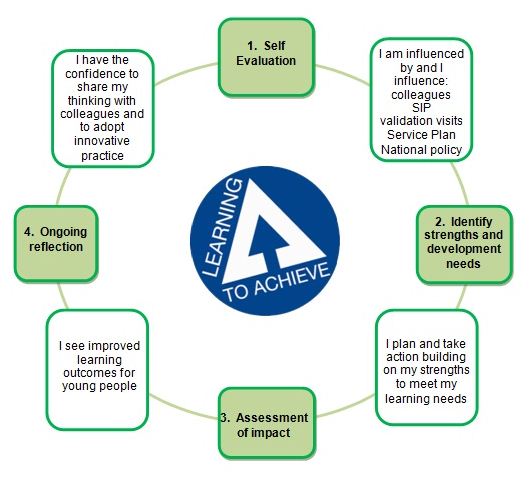
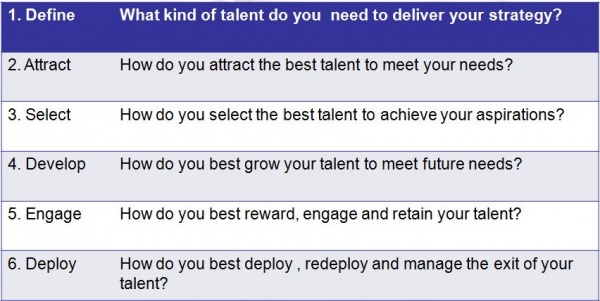
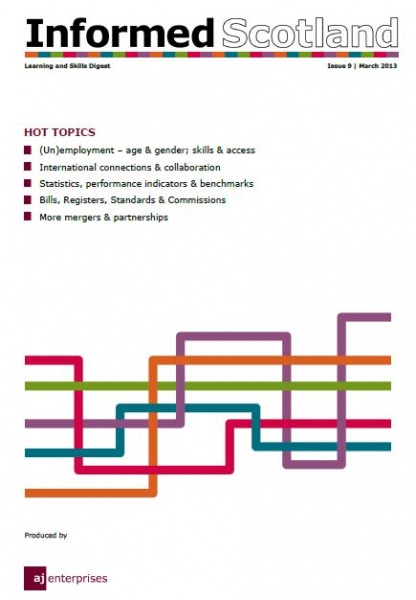 Informed Scotland – Issue 9 March 2013
Informed Scotland – Issue 9 March 2013